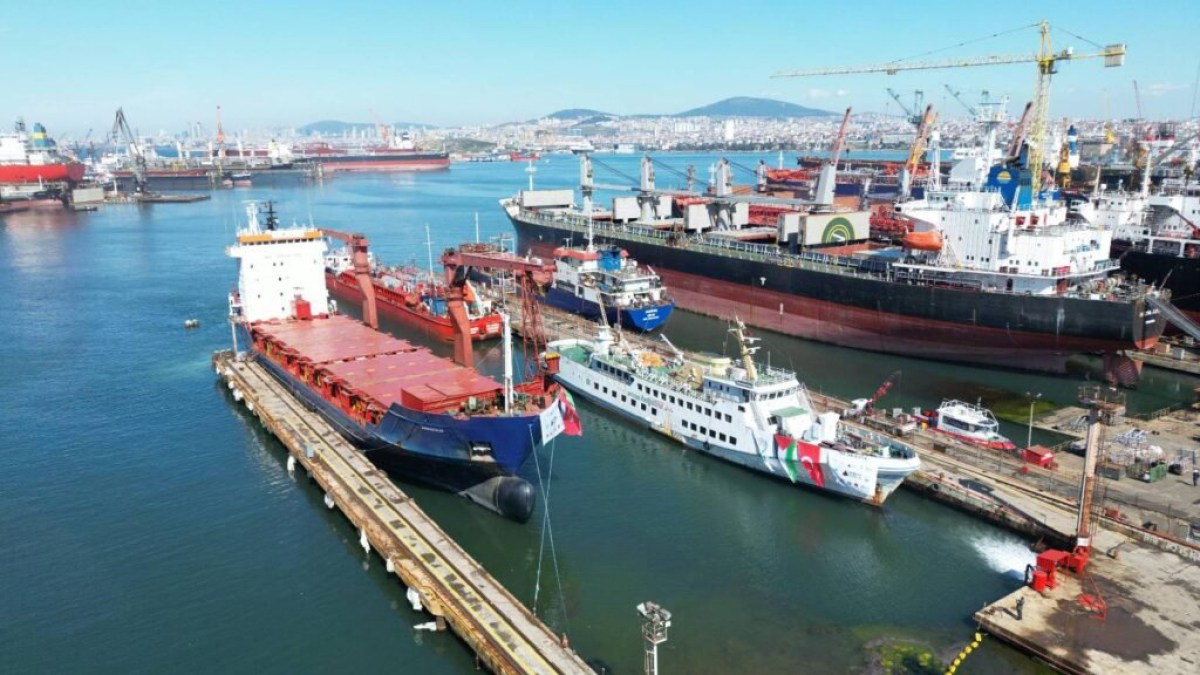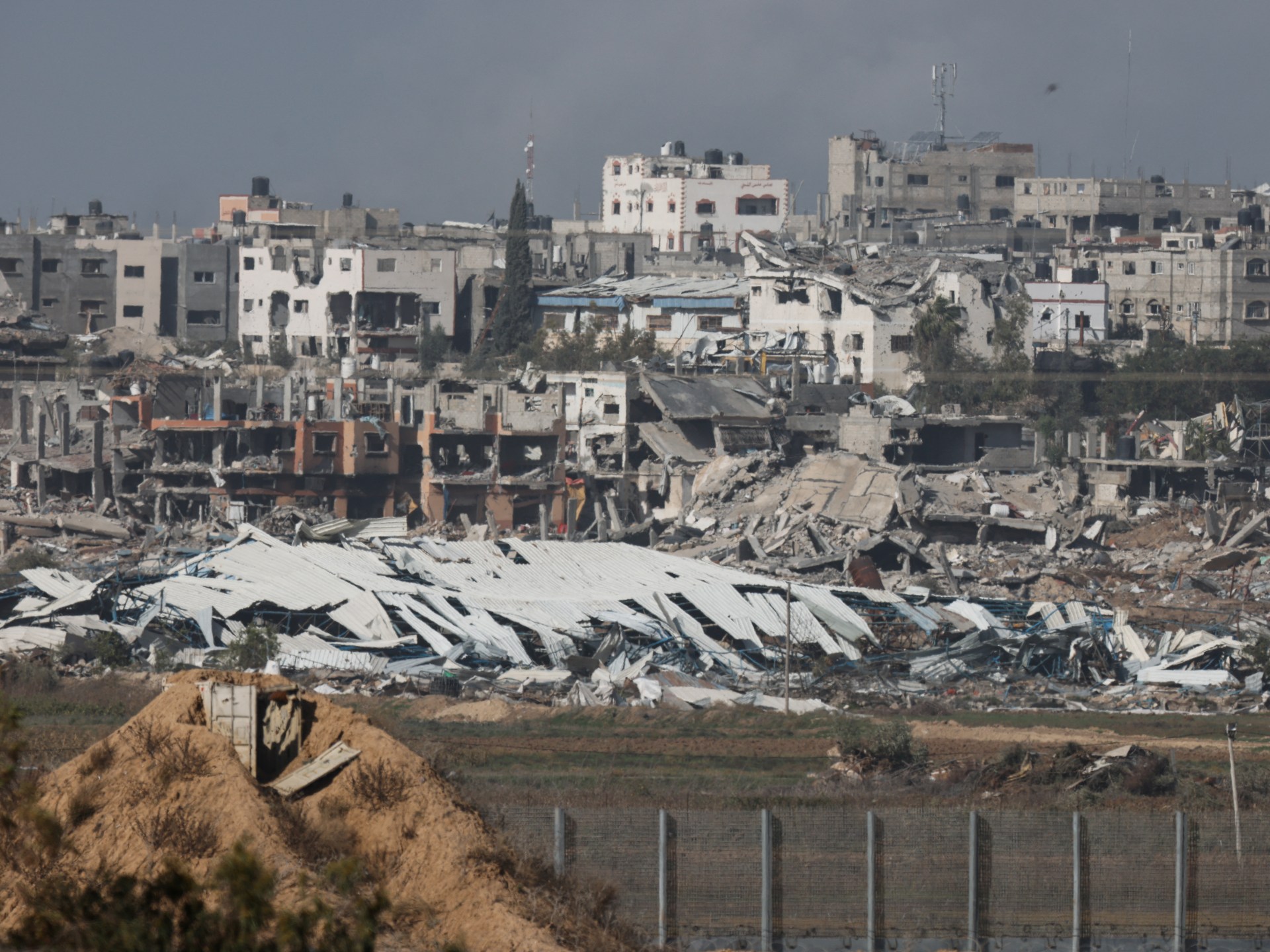It is time to seek justice for environmental war crimes | Opinions
War is horrific for people, communities and nations. The abuses they suffer demand our immediate attention, compassion and action. While some violations are clear and there are mechanisms and institutions to investigate them and offer recourse, others are not so apparent. One example of the latter is environmental war crimes.
We are only beginning to understand the full extent of wars’ impact on air, water and the natural environment; on soils and agriculture; on energy and water infrastructure; and ultimately, on public health and safety. The challenge is that much of this cannot be easily seen and has not yet been sufficiently studied, and it is likely that the victims of this less visible side of war may be far greater in number than imagined.
Where there are crumbled buildings, there may be deadly asbestos and silica dust dispersed into the air. Where there are landmines and unexploded ordnance, or damaged industrial sites, there may be leaks of heavy metals and other potent pollutants, some of which last for generations. Where lakes and farm fields are poisoned, food security suffers.
Today’s international law already includes tools to prosecute war crimes that do disproportionate damage to the environment, but prosecutions for such crimes have been rare in either local or international courts. Reparations for this damage has also been far too limited, with claims in international tribunals meeting evidentiary roadblocks.
There are some positive signs that this could change. The UN General Assembly brought attention to this issue in an important resolution in 2022 on the protection of the environment in relation to armed conflicts, which notes the responsibility of states to provide full reparations for environmental damage due to wrongful acts in war. On March 1, the UN Environment Assembly passed a consensus resolution that called for better data collection on the environmental damage associated with armed conflict.
The prosecutor of the International Criminal Court, Karim Khan, also recently announced that his office is developing a comprehensive policy on environmental crimes, with a firm commitment to advance accountability for these crimes.
A real challenge is to track environmental damage even while a conflict is under way. But this is essential in order to protect public health and take urgent measures to limit damage, such as stopping active leaks of deadly pollutants into rivers or farmland. Documenting the damage is also important in order to ensure full reparations are eventually paid, as is required if it is caused by illegal acts of war, and so that individual perpetrators can be held to account.
An important contribution in this area is emerging in Ukraine.
Russia’s full-scale invasion of Ukraine has had a terrible impact on the natural environment. Ukraine is a country with impressive biodiversity and important nature reserves, but the war has devastated many areas. Soils and waterways have been polluted with chemicals, while farmland, forests and green spaces have been ravaged by shelling, fires and floods.
The destruction of the Kakhovka dam a year ago, presumed to have been an intentional act by the occupying Russian forces, flooded villages and farmlands and caused widespread ecological damage all the way to the Black Sea.
On top of this, one-third of Ukraine’s territory is now suspected to be contaminated with landmines or unexploded ordnance, surpassing any other country in the world, according to the International Campaign to Ban Landmines.
We have been part of an effort to bring these environmental concerns to the world’s attention by joining a bold initiative by the president of Ukraine, Volodymyr Zelenskyy.
The president created the High-Level Working Group on the Environmental Consequences of the War in Ukraine, of which we are pleased to be members, and included environmental security as a core element of the Peace Formula that he proposed as a framework for ending the war.
This working group recently published a broad set of recommendations in an “Environmental Compact” (PDF) which points to three priorities.
First, there is a need to establish clear guidance for documenting environmental damage, employing modern technologies. By working with international partners to establish such standards, Ukraine can help guide how environmental damage is documented in all conflicts.
Second, with this data and evidence in hand, we must ensure criminal accountability and full reparations. There are important efforts already under way at the national and international levels, but there is space to expand them.
A national strategy for environmental justice, currently being developed by the prosecutor general in Ukraine, is a step in the right direction. At the international level, there should be more attention paid to these crimes in foreign courts, including through cases that apply universal jurisdiction.
Investigators and prosecutors should adopt a victim-centred approach to understanding environmental damage and the redress needed. Human rights investigations in Ukraine should give special attention to environmental damage and the risks to public health, as they assess rights violations.
Finally, the working group points to the imperative of sustainable reconstruction, incorporating development strategies that are friendly to the climate and to the environment. Efforts to apply these principles must begin now, as rebuilding is already under way in some parts of Ukraine.
Green justice and green recovery in Ukraine will be to the benefit of all countries affected by conflict around the world. When Russia launched its full-scale invasion of Ukraine two years ago, the Kremlin put the international legal order at risk. Its actions are a clear violation of international law and the UN Charter. The future of this international order, and the expectation of justice for such flagrant violations, will be determined by how the world continues to respond to this aggression, including the terrible and disproportionate attacks on the environment.
We all know that environmental threats do not stop at borders. The risk of a significant nuclear radiation disaster that hangs over Ukraine – due to the Russian occupation of the Zaporizhyya Nuclear Power Plant, Europe’s largest – is one worrying example of the regional threat. Another is the war’s impact on the Black Sea, where environmental damage is having deadly effects on sea life and impacts all countries bordering this important body of water.
Now that the world is awakening to the scale of environmental crimes in conflicts, we must work to ensure that accountability follows, addressing both individual crimes and the responsibility to repair the harm by the perpetrator state.
Justice is due in Ukraine. And justice is due equally in all conflicts where force exceeds agreed legal limits. Let us work together for a green, just and peaceful future for those nations now suffering such attacks.
The views expressed in this article are the authors’ own and do not necessarily reflect Al Jazeera’s editorial stance.
Check out our Latest News and Follow us at Facebook
Original Source







